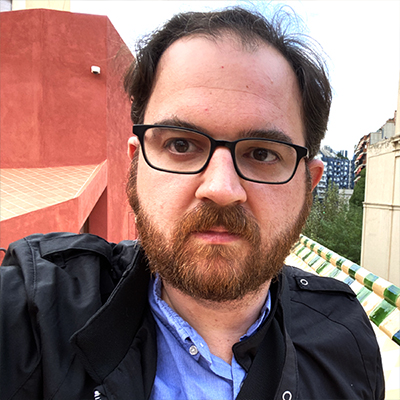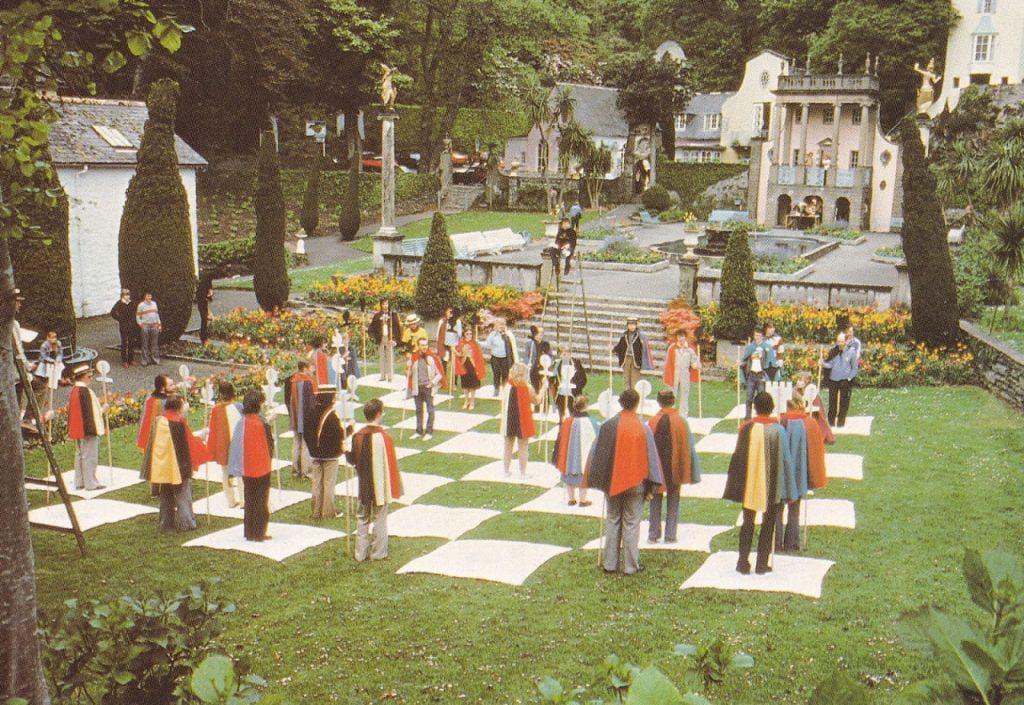
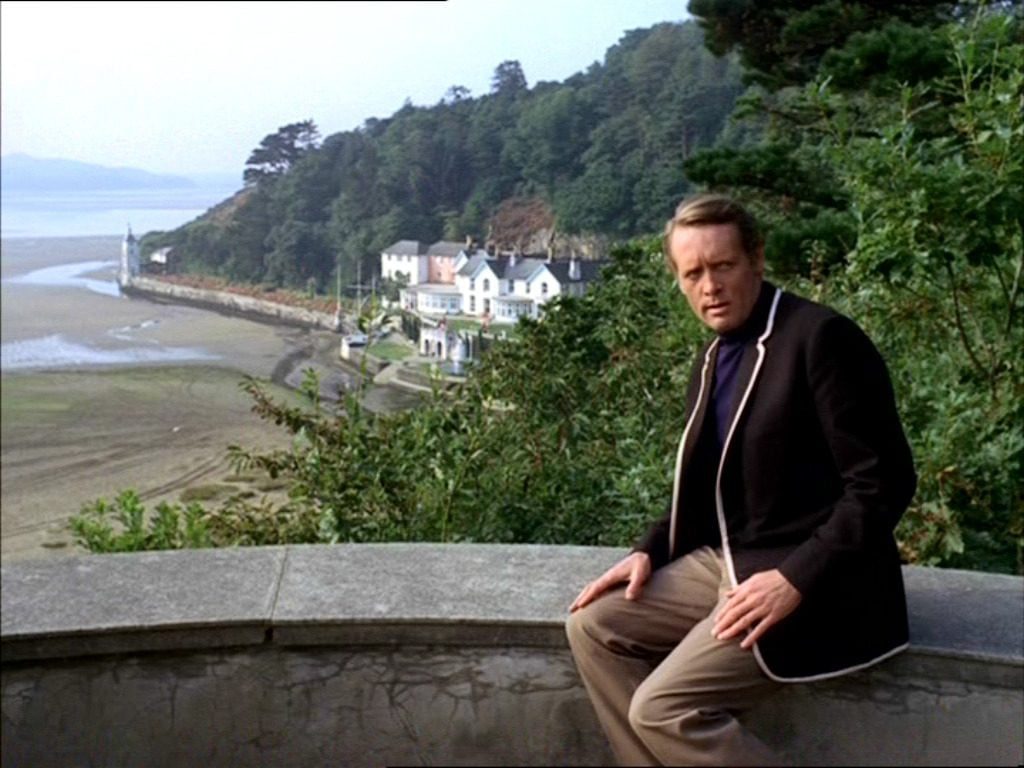
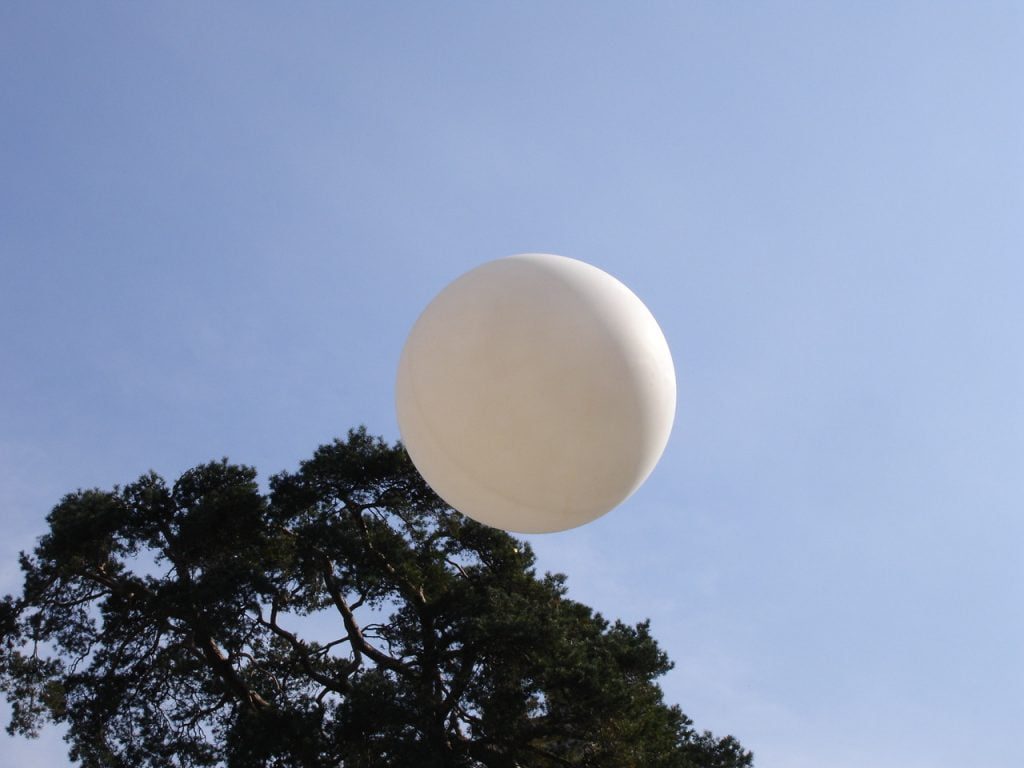

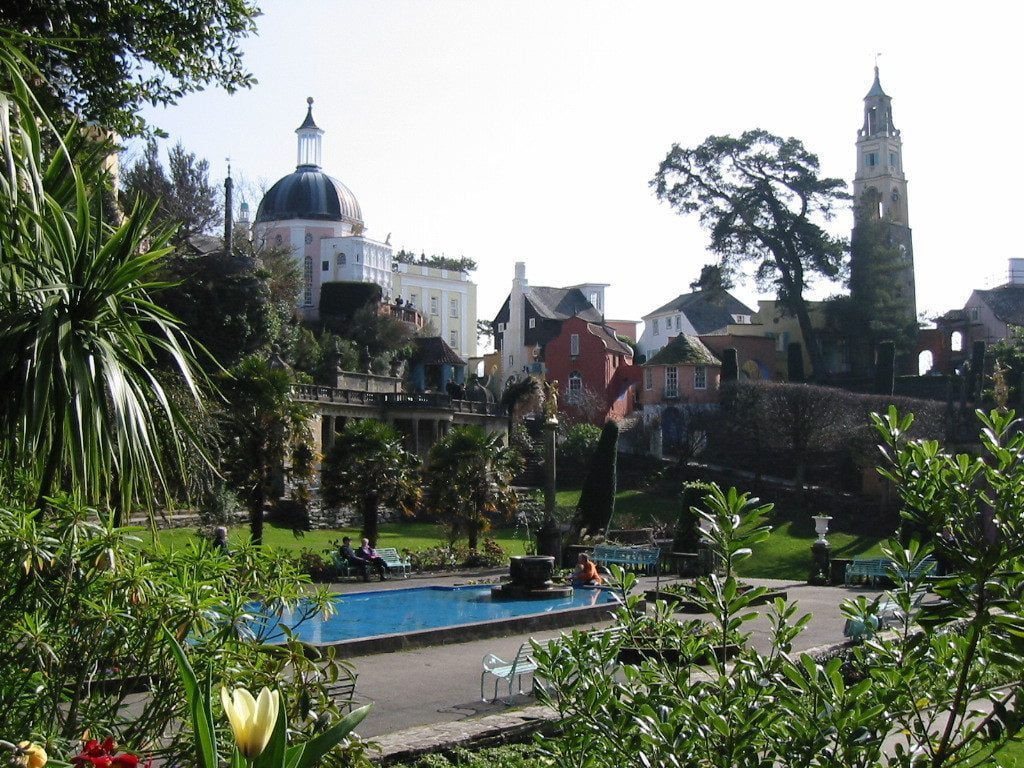
As the theme music begins we find the man we will come to know as “Number Six” racing at top speed down an empty highway. As he drives past the Houses of Parliament and into an underground car park, the camera follows him through a door (marked “Way Out”) and the narrow corridor beyond. In the office at the end, he delivers an inaudible tirade, and a sealed envelope, to its otherwise uninterested inhabitant. Slamming his fist on the desk, he pulls out of the garage in his Lotus Seven series II (with tail in tow), just as an automated typewriter exes out a copy of his file, depositing it in a drawer marked “resigned.” His escape from his apartment, however, is foiled by the (oft parodied spray of sleeping gas. After waking he finds himself in an unfamiliar location. His new home, his prison—the village.
While Patrick McGoohan’s performance as a maybe-he-is, maybe-he-isn’t Danger Man is a highlight of the surreal episodes that comprise the short lived series, the real star is not always the eponymous prisoner, but the prison itself. The village (the real-life Portmeirion village in North Wales) can only be described as a surreal (sometimes psychedelic) landscape, made all the stranger by the nameless (but numbered) inhabitants encountered there, and the bizarre gesture toward the romantic mundanity of village life riding penny-farthings by the shore. It is most assuredly a prison, and outside of the mysterious phone Two uses to communicate with his (even more) mysterious superiors, it is an enclosure as impermeable as the white orb circling the peripheries of the luxurious Italianate estate—that is to say, only when it wants to be. As Six struggles to reclaim his identity—and his freedom—he finds himself a state of perpetual examination, never able to quite manage his escape from the village. Freedom prove illusionary, or (more often) his escape attempts are foiled either by elaborate logistical fictions like Rover or sleeping gas, or his own paranoia of the human penitentiary formed from his fellow prisoners (and, just as likely, secret wardens). The fevered imagination intersecting his purpose with the village’s (information?) is continually distorted by the uncanny normalcy of daily life in his hermetically sealed habitat.
Number Two: Quite a beautiful place, really, isn’t it? Almost like a world on its own.
Number Six: I shall miss it when I’m gone.
Number Two: Oh, it will grow on you.
Be seeing you.


